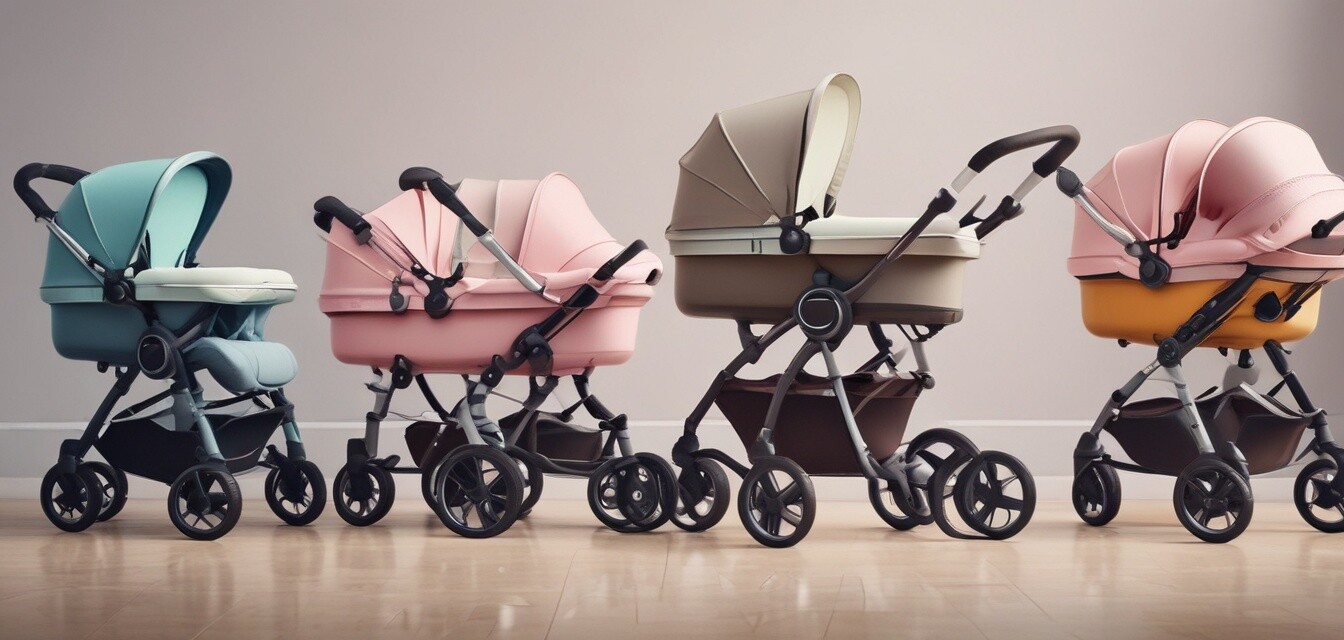
Understanding stroller weight limits: What you need to know
When it comes to choosing the right baby stroller, one of the most critical factors to consider is the weight limit. Adhering to the proper weight limit is crucial for safety and performance. In this article, we will delve into the significance of stroller weight limits, what they mean for your family, and how to choose the right stroller model for your needs.
Key takeaways
- Stroller weight limits ensure safety and stability.
- Weight limits vary based on stroller type and design.
- Always check the manufacturer’s specifications.
- Consider your baby's growth and your needs in the future.
- Choose a stroller that fits your lifestyle and weight capacity requirements.
The importance of stroller weight limits
Understanding and respecting stroller weight limits can make a significant difference in ensuring your child's safety while using the stroller. Here’s why weight limits are essential:
- Stability: Exceeding the weight limit can compromise the stroller's stability and increase the chances of tipping over.
- Control: A stroller that's too heavy can be challenging to maneuver, leading to accidents or loss of control.
- Durability: Adhering to weight limits ensures the longevity of your stroller by preventing damage due to overloading.
Types of stroller weight limits
Different stroller types come with varying weight limits. Here's a breakdown:
| Stroller Type | Typical Weight Limit | Recommended Age Range |
|---|---|---|
| Convertible Stroller | 50-75 lbs | Newborn to toddler |
| Jogging Stroller | 75 lbs | Up to 5 years |
| Lightweight Stroller | 40-55 lbs | Newborn to toddler |
| Travel System | 50 lbs | Newborn to toddler |
| Umbrella Stroller | 40-50 lbs | 6 months to 4 years |
How weight limits are determined
Manufacturers determine weight limits based on factors such as:
- Frame Material: Strollers made with high-grade aluminum can often support heavier weights.
- Design: The structure must be stable and balanced to distribute weight correctly.
- Testing Standards: Most manufacturers perform thorough testing to decide the weight limits of their strollers.
Tips for selecting the right stroller
When choosing a stroller, there are several factors to keep in mind:
- Consider your baby's current weight and potential growth.
- Evaluate how you plan to use the stroller (e.g., jogging, travel, daily errands).
- Check reviews and compare different models.
- Look for versatility in weight limits that accommodate your needs.
- Don't compromise on features that ensure safety and ease of use.
Common questions about stroller weight limits
Parents often have several questions regarding stroller weight limits. Here are some of the most frequently asked:
- What happens if I exceed the weight limit?
Exceeding the weight limit can result in instability, safety hazards, and even void any warranties.
- Can weight limits change as my child grows?
Yes! Stroller weight limits are designed with growth in mind, but always check specifications and adjust stroller usage accordingly.
- Are lightweight strollers safe for heavier toddlers?
Lightweight strollers often have lower weight limits; always adhere to the manufacturer's guidelines.
Beginner tips for fathers and mothers
- Look for strollers with adjustable weight limits that can grow with your child.
- Pay attention to product recalls and safety notices for peace of mind.
- Test strollers with weights before purchase, if possible, to gauge maneuverability.
- Ask other parents for advice on brands to trust.
- Consider online research for comparative reviews.
Pros
- Safety assurance for both child and parent.
- Prevents potential accidents due to instability.
- Longer lasting product when used within specifications.
Cons
- Limited options for heavier children in some stroller categories.
- May feel restrictive when transitioning to a new model.
Conclusion
Understanding stroller weight limits is crucial for ensuring your child's safety and optimizing the performance of the stroller you choose. Whether you're drawn to a convertible stroller, jogging stroller, or a lightweight stroller, always prioritize weight limits when making that vital decision. For more insightful tips, check out our Buying Guides to ensure you select the best stroller for your family's needs.